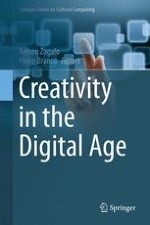2015 | OriginalPaper | Chapter
2. The Internet Is Ancient, Small Steps Are Important, and Four Other Theses About Making Things in a Digital World
Activate our intelligent search to find suitable subject content or patents.
Select sections of text to find matching patents with Artificial Intelligence. powered by
Select sections of text to find additional relevant content using AI-assisted search. powered by
